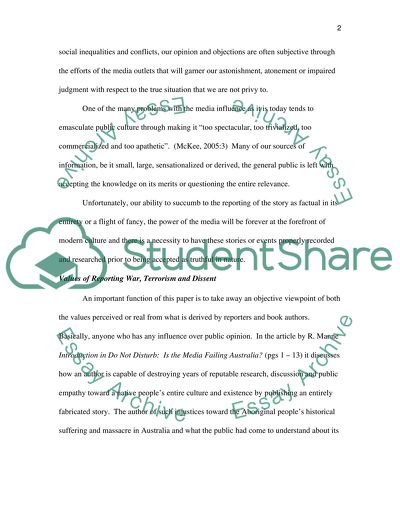Cite this document
(“Effects of Media Reporting War, Terrorism and Dissent Essay”, n.d.)
Effects of Media Reporting War, Terrorism and Dissent Essay. Retrieved from https://studentshare.org/miscellaneous/1504312-effects-of-media-reporting-war-terrorism-and-dissent
Effects of Media Reporting War, Terrorism and Dissent Essay. Retrieved from https://studentshare.org/miscellaneous/1504312-effects-of-media-reporting-war-terrorism-and-dissent
(Effects of Media Reporting War, Terrorism and Dissent Essay)
Effects of Media Reporting War, Terrorism and Dissent Essay. https://studentshare.org/miscellaneous/1504312-effects-of-media-reporting-war-terrorism-and-dissent.
Effects of Media Reporting War, Terrorism and Dissent Essay. https://studentshare.org/miscellaneous/1504312-effects-of-media-reporting-war-terrorism-and-dissent.
“Effects of Media Reporting War, Terrorism and Dissent Essay”, n.d. https://studentshare.org/miscellaneous/1504312-effects-of-media-reporting-war-terrorism-and-dissent.


